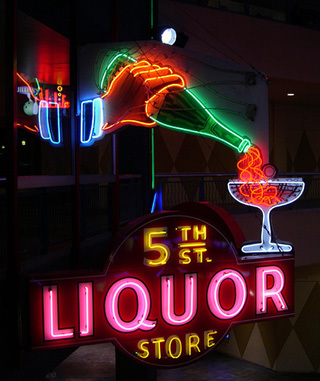At a time when most policymakers around the country fought to protect citizens from paying higher taxes, anti-alcohol activists in Maryland fought hard and won a tax hike through the legislature.
The tax increase leaves advocates for the developmentally disabled and many people in Maryland’s small business community and hospitality industry with a terrible taste in their mouths.
The measure raises the sales tax on liquor, beer and wine from 6 percent to 9 percent. That’s a whopping 50 percent increase in the tax rate signed by a governor who ran for election pledging not to raise taxes.
“The advocates wanted this bill, and they wanted it for the disabled and the mentally ill,” Delegate Susan Krebs (R-Carroll County) said on the House floor. “In my opinion, this money is going to buy votes instead of going to where it was meant to be.”
Broken No-Tax Pledge
Gov. Martin O’Malley (D) signed the bill despite a campaign pledge not to raise taxes. When the measure was proposed it was sold as a way to provide money to help the disabled statewide. Instead, most of the money will be spent in heavily Democratic Party-dominated Prince George’s County and Baltimore City, and almost none of it will go to the disabled.
“This alcohol tax hike was promoted as a way of helping people with disabilities because its backers knew this was popular,” said Marc Kilmer, senior fellow at the Maryland Public Policy Institute. “Tying it to people with disabilities was key. At the end of the day, those people got almost nothing from this. They got crumbs. It was a complete sham. If the supporters of this tax increase had said they are going to raise the sales tax on alcohol all across the state to fund school construction in Prince George’s County and Baltimore City, I don’t think there’s any way it would have passed.”
50% of Price is Taxes
This new tax, which took effect in July, is the latest in a trend of hospitality taxes across Maryland that have hurt consumers and forced some businesses to shutter or leave town. More than half the purchase price for a bottle of alcohol in Maryland goes to taxes of some kind.
When Maryland lawmakers took to the floor at the beginning of this year’s legislative session, anti-alcohol advocates had already floated the idea of raising the alcohol tax to funnel money into programs to help the developmentally disabled. Many legislators lined up to support that cause.
In the end, less than 20 percent of the estimated $90 million annually from the new alcohol tax ended up being dedicated to helping the disabled. Most of the tax, collected statewide, was earmarked for school improvement funds in the heavily Democratic Baltimore and Prince George’s Counties.
Unnecessary Increase
One thing that has made the tax hike especially hard to swallow for some is that it was unnecessary, according to Maryland Comptroller Peter Franchot, who will distribute the new revenue to the General Fund. Franchot told the Salisbury Daily Times the sales tax increase was “gratuitous” because the budget was already balanced.
O’Malley took heat from news organizations that called him out for so brazenly violating his campaign pledge.
The Annapolis Capital, the state capital newspaper, editorialized: “It was extremely disingenuous for Gov. Martin O’Malley to say that he balanced the budget without new taxes. During last year’s campaign, O’Malley mocked his opponent for making a distinction between higher fees and higher taxes. And while the increase in the alcohol tax may not have been in O’Malley’s budget, and may have been engineered by General Assembly Democrats while the governor was humming loudly and studying passing clouds, he’s not vetoing it. It’s his.”
Other media came out against the tax after discovering the true destination of the new tax revenues.
The Frederick News Post wrote: “This is another example of ‘good ol’ boy, backdoor, smoke-filled-room politics’ aimed at garnering enough votes to ram a piece of legislation through to help prop up counties that can’t control their spending.”
Ben Jenkins ([email protected]) is vice president of government communications at the Distilled Spirits Council of the United States.



